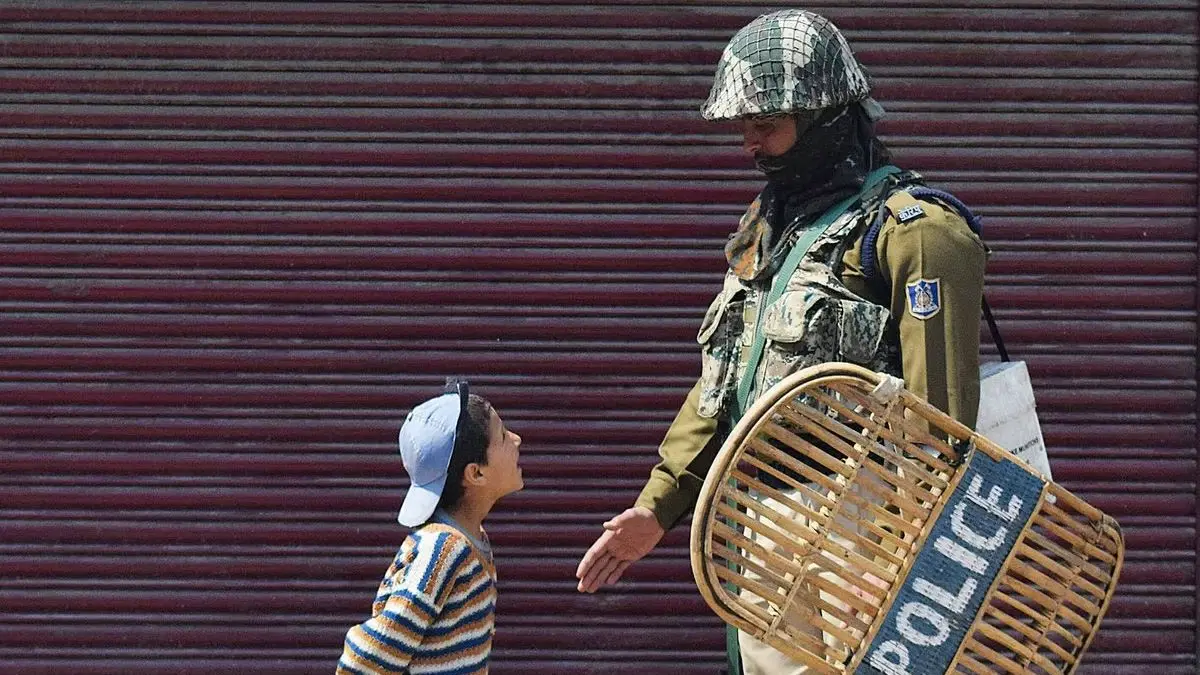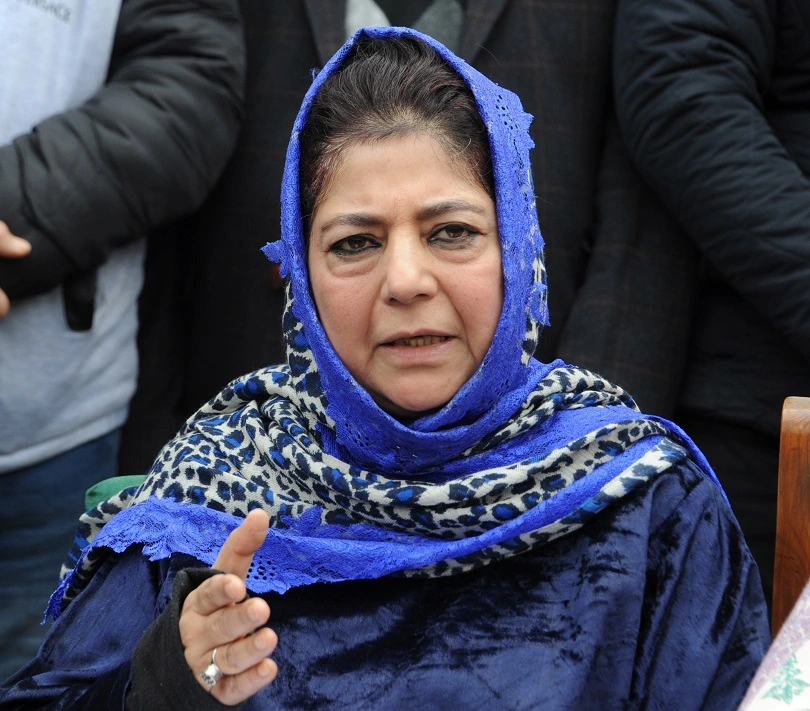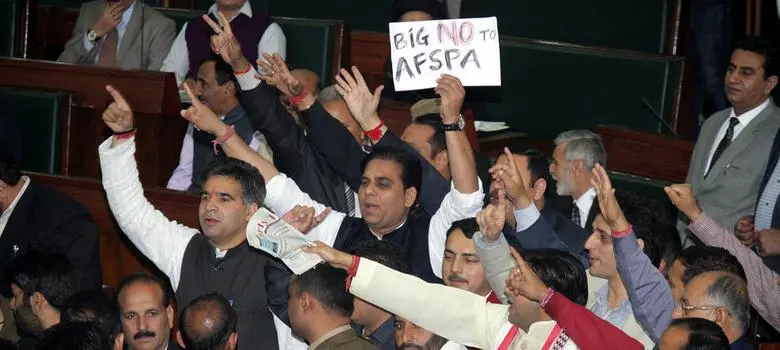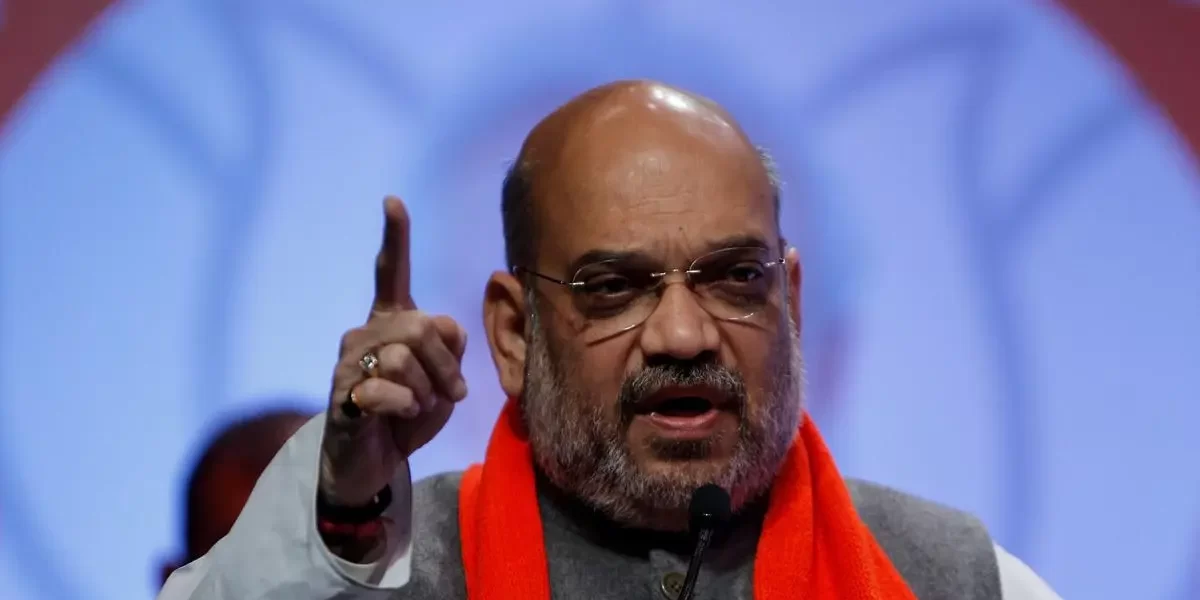Amid ongoing discussions and debates, the question remains: Will AFSPA (Armed Forces Special Powers Act) finally be removed from Kashmir? The controversial act has been a subject of intense scrutiny and criticism due to its implications on human rights and security concerns. With the rising demand for greater civilian control and a peaceful resolution to the conflict in the region, there have been calls for the repeal of AFSPA.
History and background of AFSPA in Kashmir
The Armed Forces Special Powers Act (AFSPA) was first introduced in Kashmir in 1990, as an attempt to combat the insurgency that had gripped the region. The act grants special powers to the armed forces, including the power to arrest without warrant, use force, and even shoot to kill in certain situations. These powers were deemed necessary to maintain order and counter the threats posed by militant groups operating in the region.
However, the implementation of AFSPA has been met with significant controversy. Critics argue that the act has led to widespread human rights abuses, including extrajudicial killings, torture, and enforced disappearances. There have been numerous allegations against the armed forces for excessive use of force and violation of fundamental rights under the guise of lunatogel AFSPA.

Arguments for removing AFSPA from Kashmir
Proponents of the removal of AFSPA argue that the act has failed to achieve its intended objectives and has instead exacerbated the conflict in the region. They believe that the act has fueled resentment among the local population and has alienated them from the Indian state. The excessive powers granted to the armed forces have created a sense of fear and insecurity among civilians, leading to a breakdown of trust between the people and the government.
Moreover, critics argue that AFSPA has hindered the process of justice and accountability for human rights violations. The immunity granted to the armed forces under the act has made it difficult to hold them accountable for their actions, further perpetuating a culture of impunity. Removing AFSPA would not only address the concerns of human rights advocates but also contribute to the long-term peace and stability of the region.
Arguments against removing AFSPA from Kashmir
On the other hand, there are arguments in favor of retaining AFSPA in Kashmir. Supporters of the act emphasize the security challenges faced by the armed forces in dealing with the insurgency. They believe that AFSPA provides necessary powers to the armed forces to effectively combat militant groups and maintain law and order in the region. The threat of terrorism and the constant risk faced by the armed forces necessitate the existence of such legislation.
Furthermore, proponents argue that removing AFSPA without a comprehensive alternative in place could lead to a security vacuum and a resurgence of violence. They fear that the withdrawal of AFSPA could embolden militant groups and undermine the efforts made by the armed forces to restore peace in the region. They believe that any decision regarding the removal of AFSPA should be based on a careful assessment of the ground realities and should prioritize the safety and security of the people.
The impact of AFSPA on human rights in Kashmir
The impact of AFSPA on human rights in Kashmir cannot be understated. Human rights organizations have documented numerous cases of abuses committed under the act, including extrajudicial killings, torture, and sexual violence. The impunity enjoyed by the armed forces has created an atmosphere of fear and mistrust among the local population.
The United Nations and other international bodies have repeatedly called for the repeal of AFSPA, citing concerns over human rights violations. The UN Special Rapporteur on extrajudicial, summary or arbitrary executions has expressed serious reservations about the provisions of AFSPA and its impact on the rights of the people in Kashmir.
The role of the Indian government and the Armed Forces in the decision to remove AFSPA
The decision to remove or amend AFSPA rests with the Indian government and the Armed Forces. The government has the authority to repeal or modify the act, taking into consideration the prevailing security situation and the aspirations of the people in Kashmir.
The Armed Forces, on the other hand, play a crucial role in advising the government on matters of national security. They argue that any decision regarding AFSPA should be based on a comprehensive assessment of the ground realities and the prevailing security threats. The Armed Forces have been cautious in advocating for the removal of AFSPA, given the challenges they face in dealing with the insurgency.

Public opinion on removing AFSPA from Kashmir
Public opinion on the removal of AFSPA from Kashmir is divided. While some sections of the population strongly advocate for the repeal of the act, others believe that it is necessary for maintaining security in the region. The opinions of the local population, particularly those living in areas affected by the conflict, are crucial in determining the future of AFSPA in Kashmir.
Civil society organizations, human rights activists, and political leaders have been instrumental in mobilizing public opinion and raising awareness about the implications of AFSPA. The demand for civilian control and the protection of fundamental rights has gained significant momentum in recent years, adding pressure on the government to reconsider the relevance of the act.
International perspectives on AFSPA in Kashmir
The international community has been closely monitoring the situation in Kashmir and has expressed concerns over the continued existence of AFSPA. Several countries and international organizations have called for the repeal of the act, citing human rights concerns and the need for a peaceful resolution to the conflict.
The United Nations has urged the Indian government to address human rights abuses and ensure accountability for violations committed under AFSPA. The international community has emphasized the importance of respecting the rights of the people in Kashmir and finding a sustainable solution to the conflict.

Recent developments and discussions on removing AFSPA from Kashmir
In recent years, there have been significant developments and discussions surrounding the removal of AFSPA from Kashmir. The issue has gained renewed attention, with political leaders, civil society organizations, and human rights activists pushing for its repeal.
The Indian government has shown some willingness to engage in dialogue and has initiated discussions on the future of AFSPA in Kashmir. However, the process has been slow, and concrete steps towards its removal have yet to be taken. The fate of AFSPA remains uncertain, as the debate continues and the aspirations of the people in Kashmir are taken into account.
Potential future scenarios for AFSPA in Kashmir
In conclusion, the question of whether AFSPA will be removed from Kashmir soon remains unanswered. The act has been a subject of intense debate, with arguments both for and against its removal. The impact of AFSPA on human rights in Kashmir cannot be ignored, and there is a growing consensus that its provisions need to be revisited.
The fate of AFSPA holds significant implications for the future of Kashmir and the quest for peace and justice in the region. The decision to remove or amend the act should prioritize the protection of human rights, the aspirations of the people, and the need for a peaceful resolution to the conflict. If you found this exploration compelling, we invite you to explore our article delving into the enigmatic world of James Bond, offering another lens through which to examine power dynamics and intrigue.










